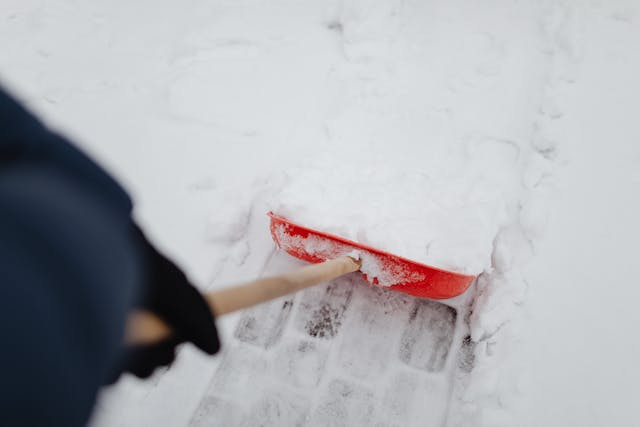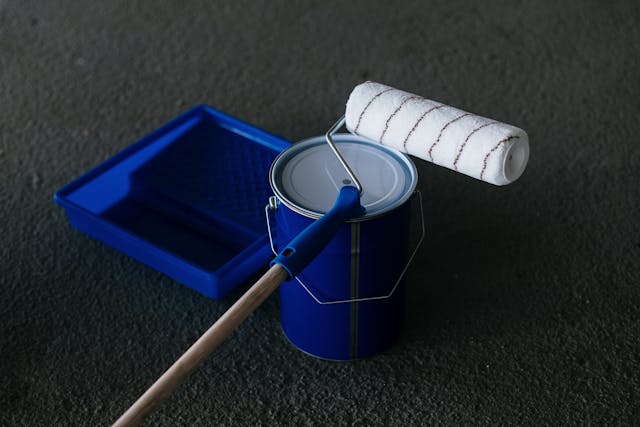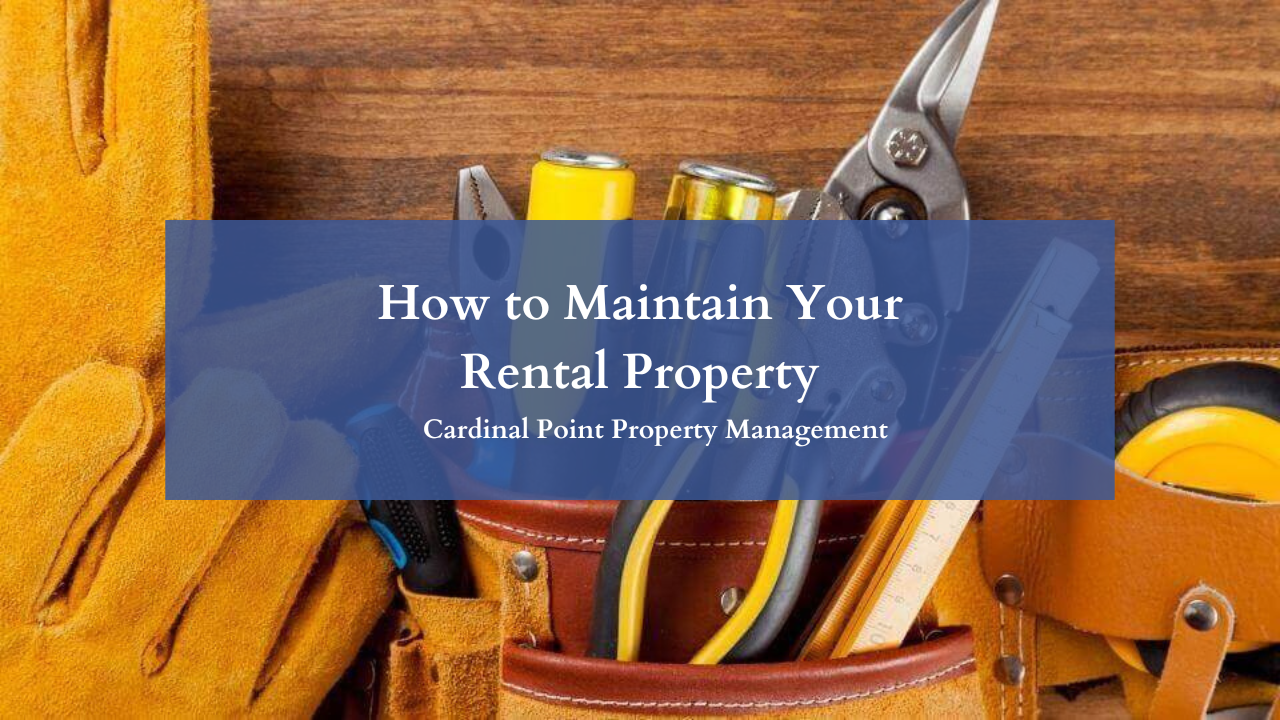Key Takeaways
- Staying ahead of New Hampshire’s seasons with a clear checklist keeps your property safe and in great shape year-round.
- Strong tenant communication and regular inspections help you catch small issues early and build lasting relationships.
- Partnering with a property management team like Cardinal Point Property Management makes it easier to keep your rental running smoothly.
Owning a rental property is a great way to build long-term wealth, but keeping it in excellent condition requires consistency and care.
At Cardinal Point Property Management, we know that New Hampshire landlords face unique conditions throughout the year, from heavy snowfall and icy walkways in winter to humid summers that can affect building systems.
Taking a proactive approach not only protects your investment but also creates a comfortable home for your tenants.
In this guide, we’ll walk through the most effective ways to maintain your rental property, from seasonal upkeep to proactive inspections and tenant communication.
1. Prepare for Harsh Winters
New Hampshire winters can be long and snowy, which makes preparation essential. Protecting your property from freezing temperatures and heavy snow loads reduces the risk of expensive repairs later on.
Key winter maintenance tasks include:
- Insulate Pipes: Frozen pipes are a major concern in cold climates. Wrap exposed pipes and remind tenants to keep the heat on during frigid nights.
- Heating Systems: Service boilers or furnaces before temperatures drop. Many properties rely on oil or propane, so schedule timely fuel deliveries to avoid interruptions.
- Roof Inspections: Check for ice dams, which can cause leaks and water damage. Clear excess snow buildup after major storms.
- Snow Removal: Arrange snowplowing services in advance and ensure walkways are clear and salted to prevent accidents.

2. Plan Ahead with Seasonal Checklists
Each season brings different property care needs. Having a checklist ensures you stay ahead of maintenance.
Spring
- Inspect the roof for damage caused by snow and ice.
- Clean gutters to prepare for spring rains.
- Test sump pumps to handle melting snow and prevent basement flooding.
- Refresh landscaping by reseeding lawns and trimming back branches damaged by winter storms.
Summer
- Service air conditioning systems if your property has them.
- Monitor for humidity-related issues like mold in basements or poorly ventilated areas.
- Repaint or seal decks and fences to protect against sun and rain.
- Check well water systems if applicable, ensuring safe drinking water for tenants.
Fall
- Have the heating system serviced before cold weather arrives.
- Schedule chimney and fireplace inspections for properties that use wood or pellet stoves.
- Clear gutters of leaves to prevent ice blockages.
- Seal drafts around windows and doors to improve efficiency during the winter.
Winter
- Keep paths clear of ice and snow for tenant safety.
- Monitor roofs for snow buildup and potential leaks.
- Remind tenants about safe heating practices, especially with space heaters or fireplaces.
- Check insulation in attics and basements to maintain consistent heating.
3. Maintain Curb Appeal Year-Round
Curb appeal matters in every season, even when snow covers the ground. A property that looks well cared for shows tenants that you value the space.
Simple ways to boost curb appeal:
- In spring and summer, keep lawns trimmed and flower beds tidy.
- Add gravel or crushed stone to driveways or paths to prevent mud during rainy seasons.
- In winter, invest in professional snow removal so driveways and parking areas remain accessible.
- Repair or repaint exterior paint and siding to withstand New England’s wet springs and icy winters.

4. Schedule Regular Property Inspections
While it’s important to respect a tenant’s privacy, periodic inspections are a must. They allow you to catch maintenance concerns early while also ensuring tenants are following lease agreements.
Best practices:
- Provide the required 24–48 hours’ notice before entering.
- Check attics and basements for water intrusion.
- Look for signs of pests like carpenter ants or mice, which are common in older New England homes.
- Document conditions with photos to keep accurate records.
5. Keep Communication Open with Tenants
Good relationships with tenants make property maintenance easier. When tenants feel heard, they are more likely to report small issues before they grow into costly repairs.
Tips for effective communication:
- Provide clear instructions for reporting maintenance issues.
- Respond quickly to requests, even if you need time to schedule repairs.
- Follow up to confirm repairs were completed to their satisfaction.
6. Work with Reliable Local Contractors
From snow plowing services to chimney sweeps, having dependable local vendors is a must. Build a reliable network so you can address issues quickly, even during peak seasons.
- Research companies with strong reputations in your area.
- Keep a list of emergency contacts, especially for plumbing and heating repairs during the winter.
- Consider building long-term relationships with vendors to secure priority scheduling.
7. Budget for New Hampshire Property Costs
A smart landlord sets aside funds specifically for maintenance. While it’s impossible to predict every repair, having a dedicated budget means you’re prepared when the unexpected happens.
Snow removal contracts, fuel costs for heating, and septic maintenance are just some of the recurring expenses to plan for.

8. Keep Detailed Records
Maintaining good records helps you track repairs, plan budgets, and protect yourself in case of disputes.
What to record:
- Dates of inspections and maintenance.
- Invoices from vendors and contractors.
- Communication with tenants regarding repairs.
- Warranty information for appliances and systems.
Having this documentation not only keeps you organized but also demonstrates professionalism if you ever need to provide proof of upkeep.
9. Stay Up to Date with Local Requirements
Landlord responsibilities include providing safe, livable housing. This often means:
- Maintaining safe and livable conditions.
- Providing adequate hot water.
- Following local building codes and fire safety regulations.
By staying compliant, you protect your tenants and your investment.
10. Consider Professional Property Management
Caring for a rental property in New Hampshire requires knowledge of the local climate and reliable systems for upkeep.
A professional property management company like Cardinal Point Property Management can coordinate preventive maintenance, manage vendor relationships, and ensure tenant concerns are addressed quickly.
For many landlords, this partnership saves time while ensuring the property is well-maintained all year round.
Conclusion
Maintaining your rental property in New Hampshire comes down to preparation, consistency, and strong communication.
By taking care of seasonal upkeep, staying proactive with inspections, and working with reliable local vendors, you’ll keep your investment protected and your tenants happy.
If you’d like support managing these responsibilities, reach out to Cardinal Point Property Management today. Our team understands the unique needs of New Hampshire properties and is ready to help your rental thrive for years to come.


